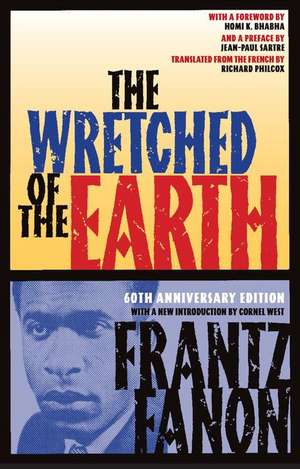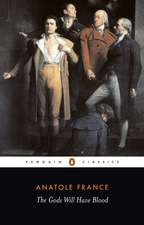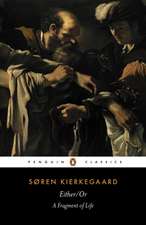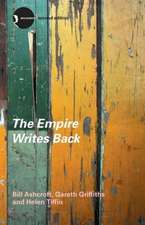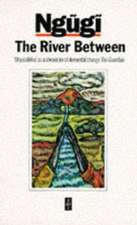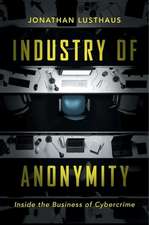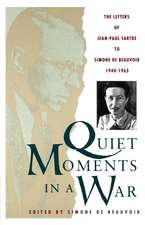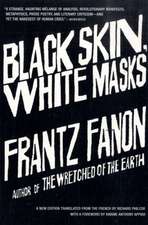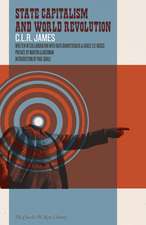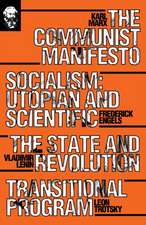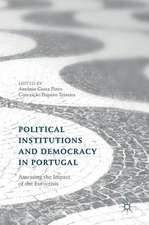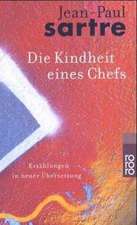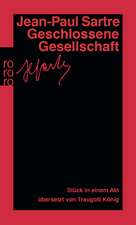The Wretched of the Earth
Autor Frantz Fanon Traducere de Richard Philcoxen Limba Engleză Paperback – 19 oct 2021
| Toate formatele și edițiile | Preț | Express |
|---|---|---|
| Paperback (2) | 52.77 lei 24-30 zile | +18.42 lei 4-10 zile |
| Penguin Books – 5 dec 2001 | 52.77 lei 24-30 zile | +18.42 lei 4-10 zile |
| Grove Atlantic – 19 oct 2021 | 98.78 lei 3-5 săpt. |
Preț: 98.78 lei
Nou
18.90€ • 19.66$ • 15.61£
Carte disponibilă
Livrare economică 24 martie-07 aprilie
Specificații
ISBN-10: 0802158633
Pagini: 336
Dimensiuni: 138 x 206 x 21 mm
Greutate: 0.3 kg
Editura: Grove Atlantic
Notă biografică
Frantz Fanon was born in Martinique in 1925. He served in the French Army during World War II, and later studied medicine and psychiatry in France, where he published his first book, Black Skin, White Masks in 1952. He joined the Algerian Nationalist Movement in the mid-1950s, and published The Wretched of the Earth shortly before dying of leukemia in December 1961.
Descriere
The sixtieth anniversary edition of Frantz Fanon's landmark text, now with a new introduction by Cornel West First published in 1961, and reissued in this sixtieth anniversary edition with a powerful new introduction by Cornel West, Frantz Fanon's The Wretched of the Earth is a masterfuland timeless interrogation of race, colonialism, psychological trauma, and revolutionary struggle, and a continuing influence on movements from Black Lives Matter to decolonization. A landmark text for revolutionaries and activists, The Wretched of the Earth is an eternal touchstone for civil rights, anti-colonialism, psychiatric studies, and Black consciousness movements around the world. Alongside Cornel West's introduction, the book features critical essays by Jean-Paul Sartre and Homi K. Bhabha. This sixtieth anniversary edition of Fanon's most famous text stands proudly alongside such pillars of anti-colonialism and anti-racism as Edward Said's Orientalism and The Autobiography of Malcolm X.
Recenzii
Have the courage to read this book
Fanon details the impact of colonialism on the psyches of black people. For the first time, I was able to understand empire as more than just an economic phenomenon, and in turn how much Africa's decolonisation was expected to reverse. Reading it more than 50 years after publication was a visceral confrontation with a legacy that remains a shadow over black people
In clear language, in words that can only have been written in the cool heat of rage, he showed us the internal theatre of racism
The writing of Malcolm X or Eldridge Cleaver or Amiri Baraka or the Black Panther leaders reveals how profoundly they have been moved by the thoughts of Frantz Fanon
This is not so much a book as a rock thrown through the window of the West. It is theCommunist Manifestoof the anticolonial revolution, and as such it is highly important for any Western reader who wants to understand the emotional force behind that revolution
